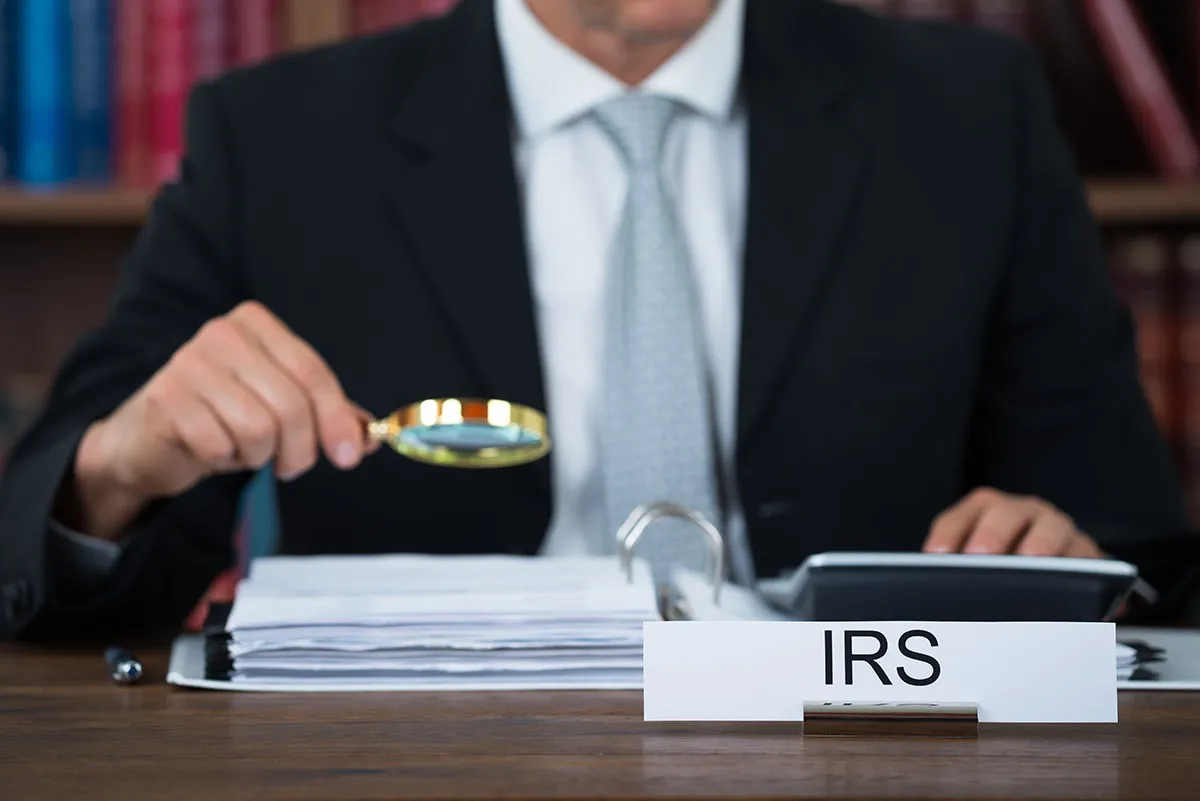 Do you know why the IRS audits Tax returns? The Internal Revenue Service (IRS) may audit tax returns because:
Do you know why the IRS audits Tax returns? The Internal Revenue Service (IRS) may audit tax returns because:
- It suspects that a taxpayer is hiding income
- It believes that a taxpayer has not done their math properly
- It believes that the taxpayer has engaged in charitable acts to avoid paying taxes
- It suspects that the taxpayer’s tax returns are not entirely accurate, whether such inaccuracies are intentional or unintentional.
The IRS may audit someone’s tax returns because they believe that the individual has intentionally avoided paying taxes. In other cases, the IRS may not believe that someone has intentionally failed to pay taxes, but wants to rectify an error, nonetheless.
Once the audit begins, it is not especially relevant why the IRS has audited one’s tax returns. The concern then becomes providing the IRS what it needs to move forward.
The attorneys at Damiens Law will work to help you resolve your IRS audit. Call our team today at (601) 957-9672.
Audits are not always the fault of the taxpayer
Upon receiving notice that you are facing an audit, it may be natural to ask: What did I do to bring this on? In some cases, IRS audits are not the result of the taxpayer’s actions.
The IRS explains that it conducts some audits through “random selection” based on “a statistical formula”. Though the comparison may not be 1:1, think of this as someone’s name being selected out of a hat containing several taxpayers’ names. An auditor may review a person’s tax returns after they have been selected and could choose to initiate an audit. The auditor may instead decide that the selected individual’s tax returns are fine, choosing not to pursue an audit.
In these cases, it is not as if the taxpayer made some glaring omission or error on their tax return. Their return was simply brought to the top of the auditor’s pile by a statistical formula, shining a spotlight specifically on those returns.
Specific issues that may lead to an IRS audit

The “why” behind an IRS audit of tax returns can determine how complex the audit is, how long the audit takes, and the potential resolution to the audit.
The taxation landscape is inherently complicated. A dense tax code makes compliance difficult, and a plethora of modern money-making avenues have left many taxpayers in decidedly gray areas.
Some common issues that may lead to an IRS audit include:
- Investment in cryptocurrencies: The popularity of cryptocurrency has put many investors, perhaps unwittingly, at risk of tax compliance issues. Those who purchase Bitcoin or other digital currencies may be unaware that they must report earnings on their tax returns, may report earnings improperly, or may run into other reporting challenges.
- Remote work blurring the lines between business expenses and personal expenses: As more taxpayers work from home, they may try to write off as many work-related expenses (in their homes) as possible. From new computers to in-home office space, remote workers may attempt to save on their taxes by writing off more than they should. A large number of business-related write-offs could contribute to an audit.
- Personal stock trading: Apps like Robinhood have made it easy for individuals to buy and sell stocks and other assets. These individuals may fail to pay capital gains tax as a stockbroker would generally advise them to. Failing to pay adequate taxes on personal trading gains could be a red flag to the IRS.
These are just a few of the many potential triggers of an IRS audit. Excessive tax write-offs of any kind, reported income that does not match up with an extravagant lifestyle, and progression into a new tax bracket could also increase your odds of facing an audit.
If you have any questions about why you have been audited, an experienced tax attorney from Damiens Law may be able to help you answer those questions.
What are my odds of facing an audit?
The United States Government Accountability Office (GAO) explains that being on either pole of the income scale increases your risk of facing an audit. Those earning less than $25,000 or more than $200,000 in reported income per year face a higher chance of being audited compared with the rest of the taxpaying population.
Still, the odds of facing an audit remain statistically low. Even those in the most-audited tax bracket, those who earn $5 million or more in a year, faced a 2.35% chance of being audited in 2019. Those who earned between $25,000 and $199,999 faced only a .17% chance of being audited in the same year.
Nobody should take these statistics to mean that they cannot be audited, however. With increased funding of the IRS projected by the Congressional Budget Office (CBO), there may come higher rates of audits well into the future.
How does the IRS conduct an audit?
The IRS informs the taxpayer of an audit by mail and makes clear that the IRS will not contact you by phone regarding an audit. Once informed of an audit, the next steps may include:
- Providing additional information or documentation by mail: If the IRS initially pursues a mail-based audit, it may ask that you provide written context or documentation for the tax return(s) in question. It may request income records, proof of items that you have deducted, or other forms of documentation. The IRS’ correspondence will instruct you where to send such documentation.
- In-person meetings with IRS representatives: The IRS may conduct an audit in person, or the person being audited may request an in-person audit if it is easier for them. The audited individual may meet with IRS representatives at their office, at their own office or home, or in another location to exchange records, answer questions, and sort out other details of the audit.
Once the audited individual has provided the IRS everything that it requests, the next step may be to wait for a conclusion.
What are the possible outcomes of an IRS audit?

The IRS will notify the subject of the outcome of their audit by mail. The three primary outcomes of an IRS audit are:
- No changes to the tax record: After investigation, the IRS may conclude that tax records were accurate or that inaccuracies were not significant enough to warrant any action. This may be the best-case scenario for someone who faces an audit.
- Agreement with proposed changes to your tax records: The IRS may note inaccuracies in the subject’s tax records, perhaps requiring that the audited individual pay additional tax payments as a consequence. The subject can agree to pay the tax penalty and move forward.
- Disagreement with proposed changes to your tax record: If the IRS cites inaccuracies and requires the taxpayer to pay more in taxes, but the subject disagrees, then the taxpayer may request mediation, file an appeal, and meet with an IRS manager.
The IRS could uphold its findings even after appeal or mediation. In this case, the audited individual may need to take the steps ordered by the IRS or face legal repercussions.
How long does an audit take?
The IRS does not provide an exact timeframe for completing an audit. It notes that audits vary case-by-case, and features that could determine the length of an audit include:
- The number of tax returns being audited
- The complexity of the tax returns in question
- The complexity of the issue at hand — an audit resulting from a simple math error could be far simpler than one revolving around several high-value charitable donations, as one example
- Your ability to track down and provide any records that the IRS requests
Audits will take time, though it is not safe to say precisely how much time any given audit will consume. A tax attorney from Damiens Law can help you complete your end of the audit, ensuring that there are no delays that you could prevent.
What should you do if you have been notified of an IRS audit?
If you receive notice of an audit by the IRS, keep calm. If you follow the IRS’ instructions, retain an experienced accountant and tax attorney, and act in good faith, then you may navigate the audit process without serious issue.
You should make the IRS audit your priority. You may face deadlines for providing documentation and may need to attend meetings with IRS officials. You will want to abide by those deadlines and be thoroughly prepared to explain your accounting, and this means giving your audit the attention it deserves.
Having an experienced tax attorney or accountant to help could lift a great weight off of your shoulders. These professionals may have experience and knowledge that you do not possess. Both parties may help you overcome the stress and requirements of an IRS audit with minimal harm to your bank account.
Consider hiring a tax attorney to guide you through the process when the IRS Audits Tax Returns
If you are facing an IRS audit, hiring a tax attorney may help you overcome the process as efficiently as possible. Either party may begin by explaining why the IRS has audited your tax returns, if they know or suspect the reason.
An attorney, along with your accountant, may help you better understand your own tax returns. This understanding is critical if you hope to emerge from an audit with minimal personal and financial harm.
The IRS has immense resources and is serious about the audit process. You should have a similar seriousness about the audit process, and you can also have a resource of your own. A tax attorney can guide you through the process ahead, dealing with the IRS and counseling you towards an acceptable resolution. The attorneys at Damiens Law are ready to assist you. Call us at (601) 957-9672.
Contact us online or call (601) 957-9672 to schedule a free consultation.



